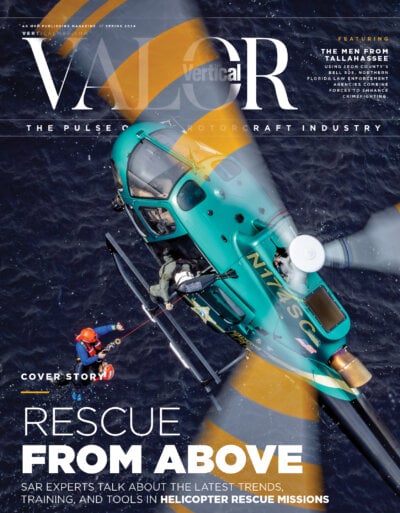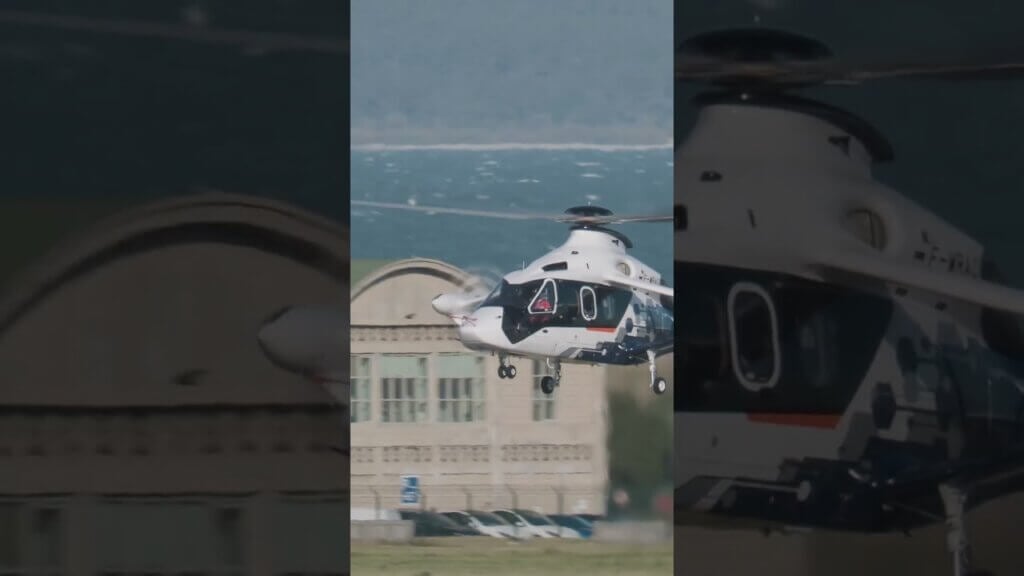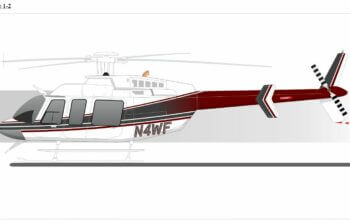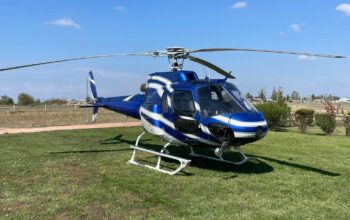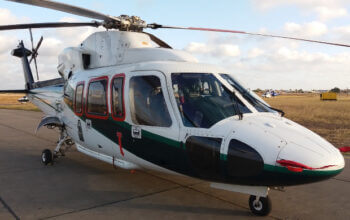
Beta Technologies has landed its all-electric aircraft at Duke Field, a subsidiary of Eglin Air Force Base, to begin a contracted deployment period with the U.S. Air Force.
The aircraft, which was delivered by a series of flights down the east coast, will be utilized for a designated curriculum of experimentation over the course of a months-long deployment. This marks Beta’s first delivery of an aircraft to a contracted partner, and the Air Force’s receipt of its first manned aircraft — an effort that follows the commissioning of Beta’s charger at Duke Field earlier this month.
Beta’s ALIA aircraft, along with its core flight test team, will remain at Duke Field for several months to work hand-in-hand with the 413th Squadron of the Air Force to conduct hands-on experimentation and training with the technology. The Air Force will validate vital use cases including critical resupply, cargo delivery, and personnel transport.

To ensure the aircraft’s safe arrival — and capture additional learnings via real-life testing — Beta flew ALIA down to Duke field, exercising its Market Survey Certificate from the FAA. During this flight, ALIA covered 2,000 miles (1,700 nautical miles) across 12 states, including:
- A stop in Syracuse to meet with the Federal Interagency Working Group responsible for planning and coordination to integrate advanced air mobility aircraft into the national airspace system;
- Commissioning the first electric aircraft charger in Massachusetts (Marshfield)
- Flying in the Class B airspace of Boston and New York City;
- Becoming the first all-electric aircraft cleared to fly into the highly restricted Washington, D.C. Flight Restricted Zone (FRZ) with its arrival onto Joint Base Andrews in Maryland;
- And breaking ground on the first electric aircraft charger in North Carolina at Raleigh Executive Jetport, in partnership with NCDOT and AFWERX.
Flights were piloted by various members of BETA’s growing cadre of test pilots, including: Chris Caputo, a former U.S. Air Force fighter pilot that operated A-10s, Delta Airlines commercial pilot, and CFI; Nate Moyer, a professional flight test pilot and U.S. Air Force pilot who has operated a variety of aircraft, including F-16s, C-17s; Josh Myslik, a commercial pilot and graduate of the National Test Pilot School; Cody Olsen, a commercial pilot; and Kyle Clark, Beta’s founder and CEO, a multi-rated commercial pilot and CFI.
Each flight was monitored by subject matter experts (SMEs), who captured gigabytes of data from the more than 12 hour-plus-long series of flights conducted. The company was able to charge the aircraft at several of its own charging stations, including one of its newest sites, located in Marshfield, Massachusetts.

This is one of 14 BETA chargers online today, with more than 60 additional sites in development or construction.
“For the past several years, AFWERX has provided critical input and support to the BETA programs,” said Clark. “Deploying ALIA for experimentation and training at Duke Field is the natural next step in our partnership. We look forward to working hand-in-hand with the U.S. Air Force over the next few months as we work together to assess how the economic, sustainability, and energy independence benefits of electric aviation can serve our military.
“In addition to the milestone of delivering an asset to our partners, this mission has been an invaluable opportunity to fly our electric aircraft down the east coast into the communities this technology, and our operators, will ultimately serve.”
In addition to ALIA, Beta has also delivered a mobile simulator to Duke Field as a means of training Air Force pilots prior to experimentation with the full-size, piloted aircraft. In September, the company also installed a Level 3 DC fast-charger (350kW) — the first-ever electric aircraft charging station at a Department of Defense installation. This multimodal charger will support onsite experimentation of ground and air electric vehicles as well as ground support equipment at Duke Field as the DOD continues to modernize its fleet and prioritize sustainability commitments.
“The Department of the Air Force is constantly searching for the next generation of technology to make our warfighters safer and more efficient,” said Col Elliott Leigh, AFWERX director and chief commercialization officer for the DAF.
“As agile innovators, we believe that partnering with American businesses is the key to this goal for delivering disruptive air capabilities.”

“It’s an exciting day to see Beta’s ALIA electric aircraft arrive to Duke Field,” said Maj Riley Livermore, 413th Flight Test Squadron flight commander.
“As the Air Force’s rotary wing test squadron, we’ll be responsible for coordinating daily flight operations to include range scheduling and logistics support. Then we’ll write a report following the conclusion of the test deployment to report our findings with AFWERX leadership.”
Today’s arrival marks the next step in a long-standing partnership between Beta and the DOD, through its AFWERX Agility Prime Program. The work, which officially kicked off in 2020, has seen the partners collaborate to accelerate the development and adoption of electric aviation and infrastructure within the U.S. military and commercial market.
Through this partnership, Beta became the first electric aircraft developer to receive an airworthiness certificate for manned flight from the military, and has also conducted the industry’s only manned qualitative evaluation flights with test pilots from the Air Force and Army.
Beta continues to progress its all-electric aircraft, ALIA CTOL and ALIA VTOL, toward FAA certification, anticipating entry into service in 2025 and 2026, respectively. The company recently opened the doors to its 188,500 square foot aircraft production facility in South Burlington, Vermont, where it will begin manufacturing these aircraft on its production line.
This press release was prepared and distributed by Beta Technologies.




